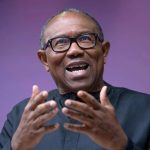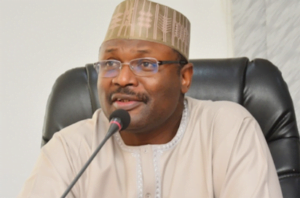Members of the Organised Private Sector (OPS) and economists have expressed concerns over the recent hike in Nigeria’s benchmark interest rate (Monetary Policy Rate) by the Monetary Policy Committee (MPC), fearing it could severely impact the ability of economic operators to repay their loans.
During the 295th MPC meeting, the Central Bank of Nigeria (CBN) Governor, Olayemi Cardoso, announced a decision to increase the interest rate by 150 basis points to 26.25% from 24.74%. This marks the third consecutive increase in the benchmark interest rate this year, totaling a 750 basis points rise since February.
In a press briefing, Cardoso defended the decision, emphasizing the MPC’s focus on achieving price stability and curbing inflation. He noted that while year-on-year headline inflation in April 2024 rose moderately, month-on-month measures of headline, food, and core inflation had declined significantly, suggesting the tight monetary policy was beginning to yield positive results.
However, as of April, Nigeria’s inflation rate had risen to 33.69%, with food inflation at 40.53%. The continued volatility of the naira was attributed to the free market system by the MPC.
The OPS and economists have strongly opposed the rate hike, citing potential worsening of the business environment and exacerbation of the loan repayment crisis. CBN figures show non-performing loans in the banking sector stood at over N1.5tn in 2023.
Segun Kuti-George, National Vice Chairman of the Nigerian Association of Small-Scale Industrialists, condemned the rate hike, calling it insensitive. Gabriel Idahosa, President of the Lagos Chamber of Commerce and Industry, argued that the CBN was using the wrong metric to fight inflation. Dele Oye, National President of the Nigerian Association of Chambers of Commerce Industry Mines and Agriculture, criticized the CBN for not engaging with private sector players in formulating monetary policies.
Muda Yusuf, CEO of the Centre for the Promotion of Private Enterprise, expressed concerns that economic operators with bank credit exposures have not recovered from previous hikes. He argued that the current Cash Reserve Ratio of 45% has a profound liquidity effect on the financial system and dampens financial intermediation.
Prof Jonathan Aremu, former Assistant Head of Research at CBN, acknowledged that the hike could hurt businesses but suggested that the CBN might have more information at its disposal for its decision. Prof Akpan Ekpo, former Vice-Chancellor of the University of Uyo, criticized the MPC’s decision, arguing that Nigeria’s inflation is not demand-driven and that continuous hikes will create more problems for the economy.
Cardoso maintained that the banking sector remains strong and resilient, with the ongoing recapitalization of banks being necessary to prepare for a $1tn economy. He emphasized the importance of a tightening policy to build on the benefits of previous rate hikes and to address inflationary pressures driven primarily by food inflation. The IMF projects global growth at 3.2% for 2024 and 2025, with Nigeria’s growth revised upward to 3.3%.
Cardoso also addressed the cybersecurity levy, stating that the CBN acted in response to the Cybercrime Act of 2015 to ensure compliance as the banker for the Federal Government.






